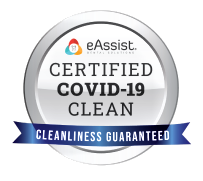
So, what are the risks?
There are many risks associated with oral cancer. Most of us know that tobacco can lead to oral cancer, but did you know that excessive alcohol use can as well? What about GERD, age, sun exposure, poor oral health, and unprotected sexual contact, among others?
HPV (Human Papilloma Virus) affects 80% of our population. HPV is often known as the virus that causes genital warts and cervical cancers. But did you know that head/neck/oral/throat cancers are linked to HPV as well? There are over 200 different strains of HPV, and whereas most are harmless, some are known to cause oral cancers. HPV accounts for more oral cancers than tobacco and alcohol use.
So, what can you do?
You can start by knowing your risks (including your inherited risk), stopping all use of tobacco products, limiting your consumption of alcohol, protecting yourself during all sexual contacts, getting the HPV vaccination at the recommended ages, and getting yearly oral cancer screenings.
Screenings are quick and painless, taking approximately 2 minutes and can be added to any appointment. Oral ID is the newest in fluorescent technology that shows cellular changes in the early stages (1 or 2), which when found, can have an 80-90 % survival rate. Early diagnosis and treatment are essential for survival. Unfortunately, without the proper screening tools, the naked eye can only catch the cellular changes when they are in the late stages (3 or 4) and that is why there is a high death rate of 43% at only 5 years after diagnosis.
Call us today to schedule your oral cancer screening!

